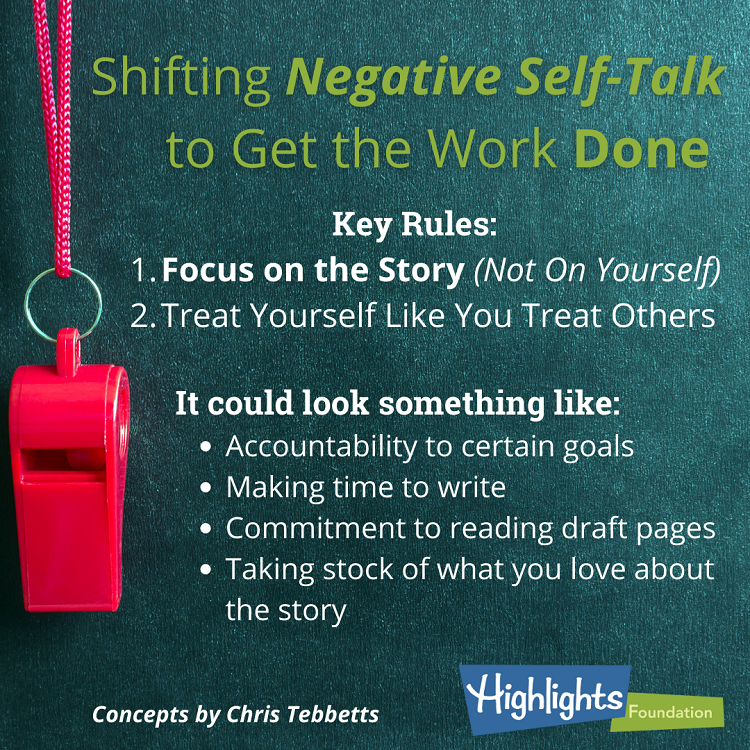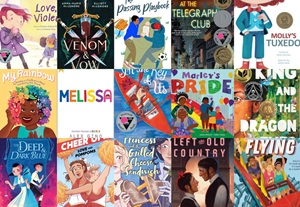We’d like to thank Chris Tebbetts for this blog post!
Self-Loathing vs. Self-Motivating
I’m going to be honest here. The process of writing a novel, for me, usually involves some amount of self-loathing along the way. I get so frustrated with myself. Why haven’t you finished yet? Did you REALLY not get anything written today….this week…these weeks? And why, oh why, oh WHY can’t you be a more efficient writer and just get stuff done without so much needless struggle??? Now, to be doubly honest, I’m not entirely against this kind of self-inflicted pressure. I’m learning to let go of the notion that there is an “easy” way for me to get a novel written. It’s hard. Period. And part of coaching myself through the process means pushing myself, hard, including when (maybe especially when) I’m up against my own pain and resistance. The question is, when am I pushing myself toward a better finished product—a better story—and when am I just plain pushing myself around? A good coach is tough, yes, but never personal.
That’s when I know I’ve gone off track. Or at least, I try to remember as much. Thoughts like those (You’re just lazy….If you were a better writer, you’d be done by now….And who cares what you have to say, anyway?) are never in the best interest of my story.
Now, don’t get me wrong. I’m not saying I’ve figured out a way to shut that voice up entirely, but I have gotten better at recognizing it for what it is: bad coaching.
Shifting Negative Self-Talk to Constructive Ideas
In other words, I have no problem pushing myself as long as it’s constructive, not destructive. So I try to shift that negative self-talk toward ideas that are more like:
- Holding myself accountable to write to a certain goal (five pages, a thousand words, four hours);
- Turning down a social plan so I can write;
- Reading my draft pages before I read that book I’ve been wanting to get to;
- Consciously taking stock of what I love about the story (even when it feels like the whole thing is a mess).
None of those ideas take aim at me, the writer. They’re all about taking care of the story and (hopefully) improving the efficiency of my process, overall. So with that in mind, I’m going to propose two “rules” for your consideration, when you’re struggling to get to the end of that draft:
Rule #1: Focus on the story, not on yourself.
The story doesn’t care what’s “wrong” with you, or how lazy you are, or how good (or bad) a writer you might be. The story cares about being brought to life. And in that context, the negative self-talk is a waste of time and energy that I could be using to figure out the story’s issues instead.
Rule #2: Treat yourself the way you’d want to treat others.
This one’s like a mirror image of the Golden Rule. Which is to say, if someone came to you with their creative challenges, how would you respond? Probably not by asking what’s wrong with them, or pointing out how slowly they’re progressing. Much more likely, you’d offer some mix of kindness, clear-eyed optimism, and constructive criticism. And that’s not just for the writer’s sake. It’s also what’s best for the story. Mary Oliver says we should be a Romeo to our muse, and last I checked, Romeo never yelled “WHAT’S TAKING YOU SO LONG?” up at that balcony.
For whatever reason, a lot of us writers have a hard time extending the same consideration to ourselves and our own work as we do to pretty much anyone else. And as I said at the top of this article, I’m still working this one out. It’s a constant balancing act, between going too hard and too easy on myself. I don’t suspect I’ll ever completely master that kind of equilibrium, but short of that, I like to keep all of the above in mind as a goal, if not the actual destination.







